Most players in the real estate market today have two issues with data: either there is not enough of it, or it is too fragmented to work with it effectively. Scraping is one of the few ways to get structured information from third-party sources but the quality of this tool depends entirely on the vendor implementing it. In real estate, scraping data is not just about pulling something from the site. It is important to take into account unstable sources, different formats, frequent updates, geographical specifics, as well as legal risks. Not every data scraping provider can handle this, especially when it comes to scaling or integration with internal systems. In this article, we will review 7 companies that provide a comprehensive approach to data scraping, collection and processing in real estate.
How to Choose a Real Estate Data Scraping Partner
Scraping itself is not a complicated technology. The tech issues begin when you need to make it stable, scalable, and secure, especially in the real estate sector, where sources are unstable, data structures are not unified, and errors can be costly. Here are four key aspects to analyze before choosing a partner. It’s also important to pay attention to pricing models for scraping services.
Data Volume & Scalability
Scraping projects rarely stop at one site or region. What looks like an MVP for 200 objects from a single portal today can turn into a system that aggregates data from dozens of sources in several countries daily in a few months. But not all providers can work at scale. The technical architecture must ensure scaling without sacrificing performance. It is also worth paying attention to whether the provider has experience with high-frequency scraping–when data needs to be updated hourly or in real time (for example, to track active listings).
API Access & Integration
Even the cleanest data loses its value if it is not integrated into your internal processes. Ideally, the result of the work should not be just a set of CSV files, but a stable API or regular delivery in a format convenient for your BI system, CRM or your own data lake.
Reliable partners offer:
- RESTful API with documentation;
- Webhooks for notifications of changes;
- Monitoring systems, logging and retry logic in case of errors.
Legal Compliance
Scraping in 2025 cannot be considered without a legal context. Especially in the EU, UK, Canada and USA, where the regulation of personal and public data is constantly increasing. Web scraping real estate data often includes addresses, agent contact details, valuations—all of which can be treated as sensitive data in different jurisdictions. It is important to make sure that the company:
- does not violate the terms of service of the sites (or provides a written explanation of the admissibility of access);
- works with proxies and throttling systems to avoid overloading resources;
- complies with GDPR/CCPA regulations regarding identifiable information (even if it is public);
- has experience responding to legal claims and a clear position on the area of responsibility.
Industry Expertise
Companies that have not worked with real estate data before may face some industry-specific challenges: from incorrect address normalization to errors in determining the type of object or its status. In real projects, the key ones are:
- correct extraction of attributes (square footage, object type, status, geolocation);
- names normalization (streets, cities, developers);
- classification of data that is often provided for free (for example, apartment description or residential complex name);
- the ability to adapt parsers even with minor changes to the site template.
If the company already has a portfolio in this area, this saves time, reduces risks, and significantly improves data quality right from the start.
Top 7 Real Estate Data Scraping Companies in 2025
DATAFOREST
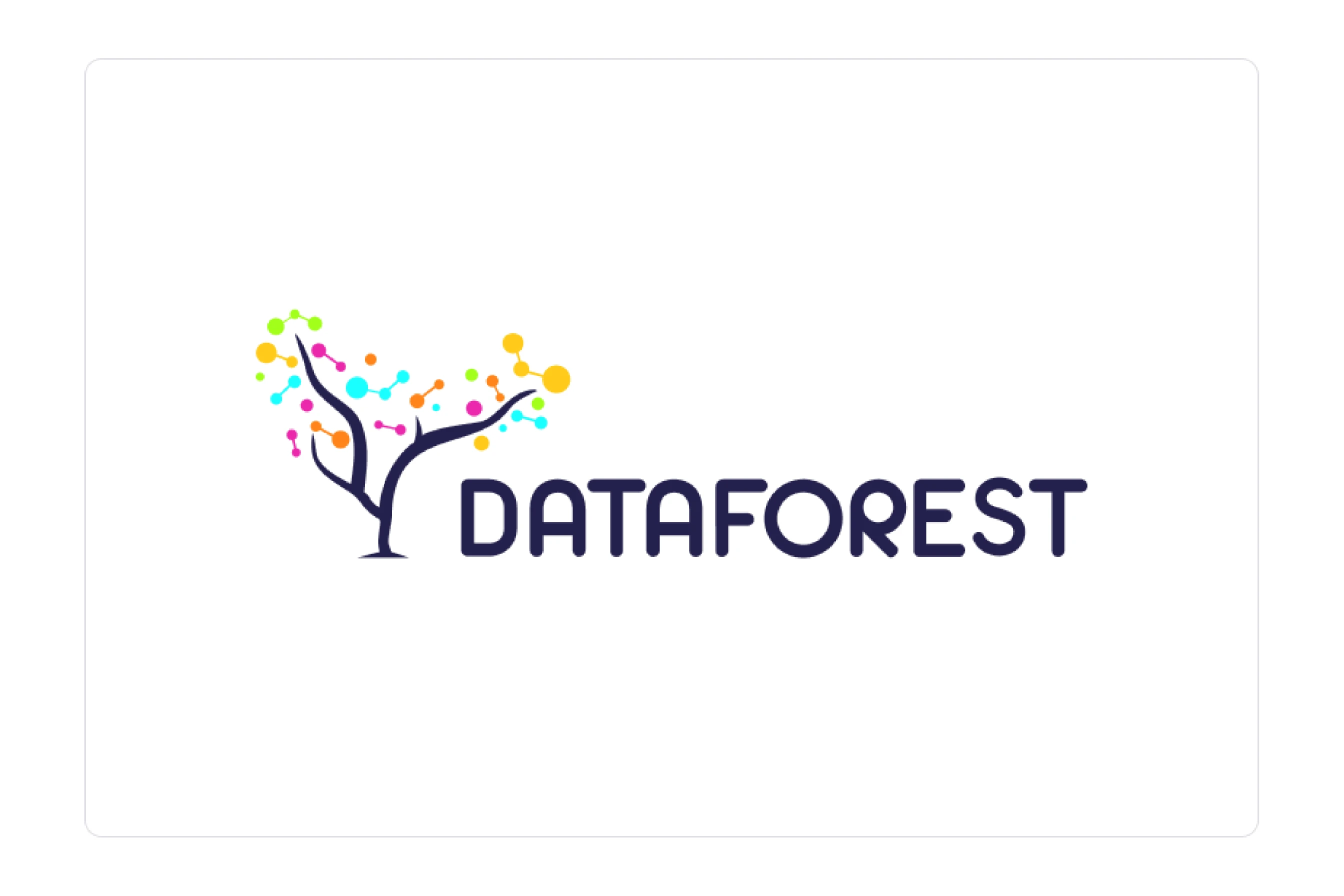
DATAFOREST is a tech company specializing in custom data scraping solutions for data collection, processing and integration. Its approach is based on custom development for specific business tasks, especially in areas with a large volume of unstructured data like real estate. DATAFOREST develops full-fledged pipelines: from data collection to processing, normalization, categorization and integration into the client’s BI systems or cloud infrastructure. Particular attention is paid to data quality: logical connections, validation, updating, preservation of context (for example, linking a listing to a developer or residential complex). It’s ideal for SMBs and enterprises that are looking for a long-term solution for their data stack.
One of DATAFOREST's real estate clients requested a lead generation web application. The requested platform provides the possibility to search through the US real estate market and send emails to the house owners. With over 150 million properties, the client needed a precise solution development plan and a unique web scraping tool.
Advantages:
- Ability to build a complete data pipeline: from collection to visualization;
- Support for large-scale projects with a large number of sources;
- Can work with unstructured data, has real estate client case studies;
- Built-in solutions for deduplication, normalization, geocoding;
- Ability to integrate with Snowflake, BigQuery, AWS, Databricks, Power BI.
Oxylabs
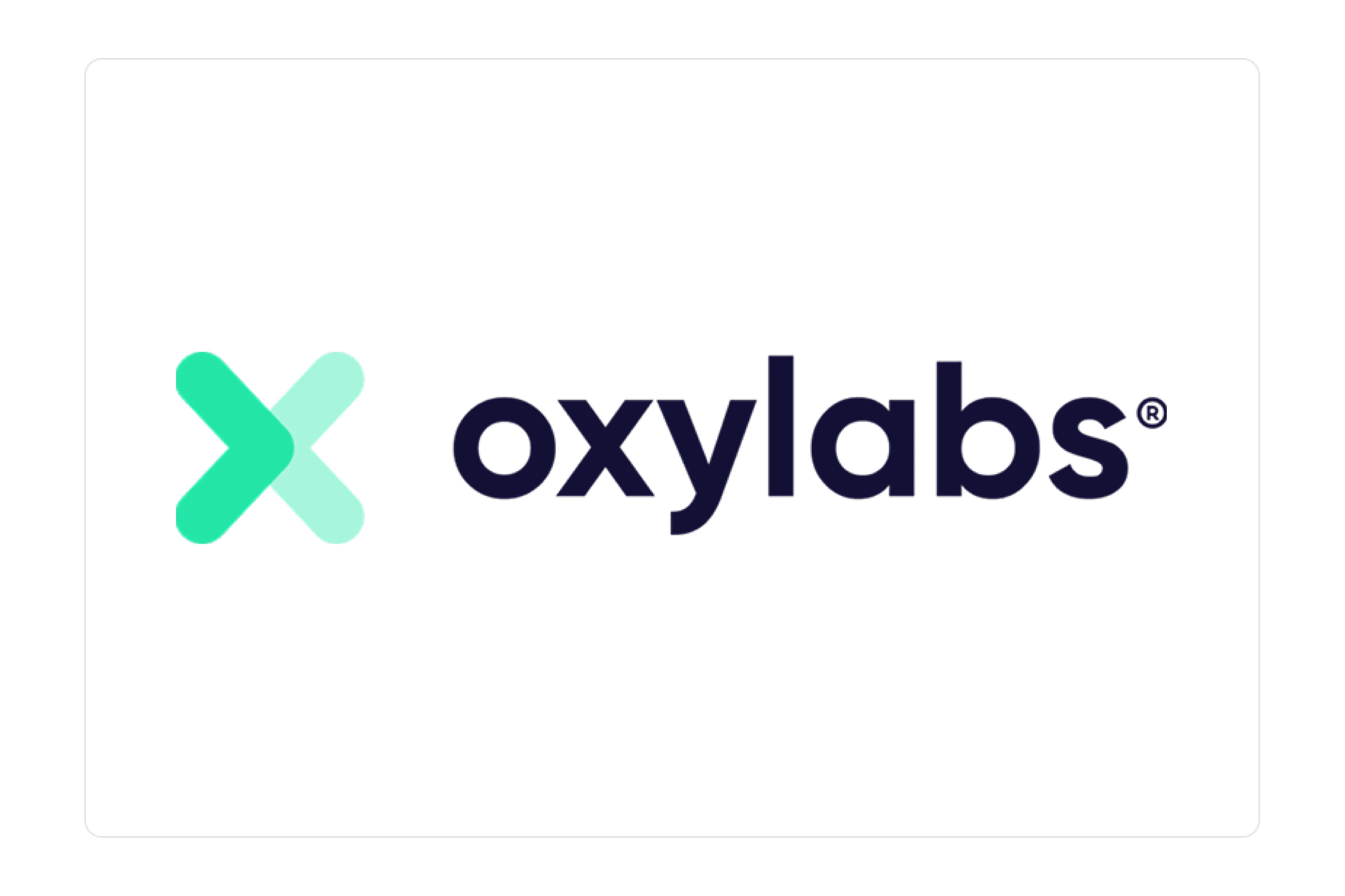
Oxylabs is one of the market leaders in proxy infrastructure and large-scale data collection. It specializes in an enterprise-level solution that allows you to access public information in real time. In the context of the real estate market analysis, Oxylabs is interesting primarily as an infrastructure partner: it does not offer custom pipelines or integrations, but provides powerful tools for those who have an internal tech team. The main advantage of Oxylabs is a stable, scalable and legally clean proxy infrastructure: residential, datacenter, mobile proxies, as well as ready-made products such as Web Unblocker or Real-Time Crawler, allowing users safely access large volumes of data, including hard-to-reach sources that are protected from bots or block suspicious requests. It is perfect for teams with internal engineering resources.
Advantages:
- Access to over 100 million IP addresses in 195+ countries;
- Powerful services for real-time collection: SERP Scraper API, E-commerce Scraper API, Real Estate Scraper API;
- High stability of requests even at high frequency;
- Competitor analysis in real estate;
- Full GDPR compliance, with documented legal-compliance policies.
ScrapeLead.io
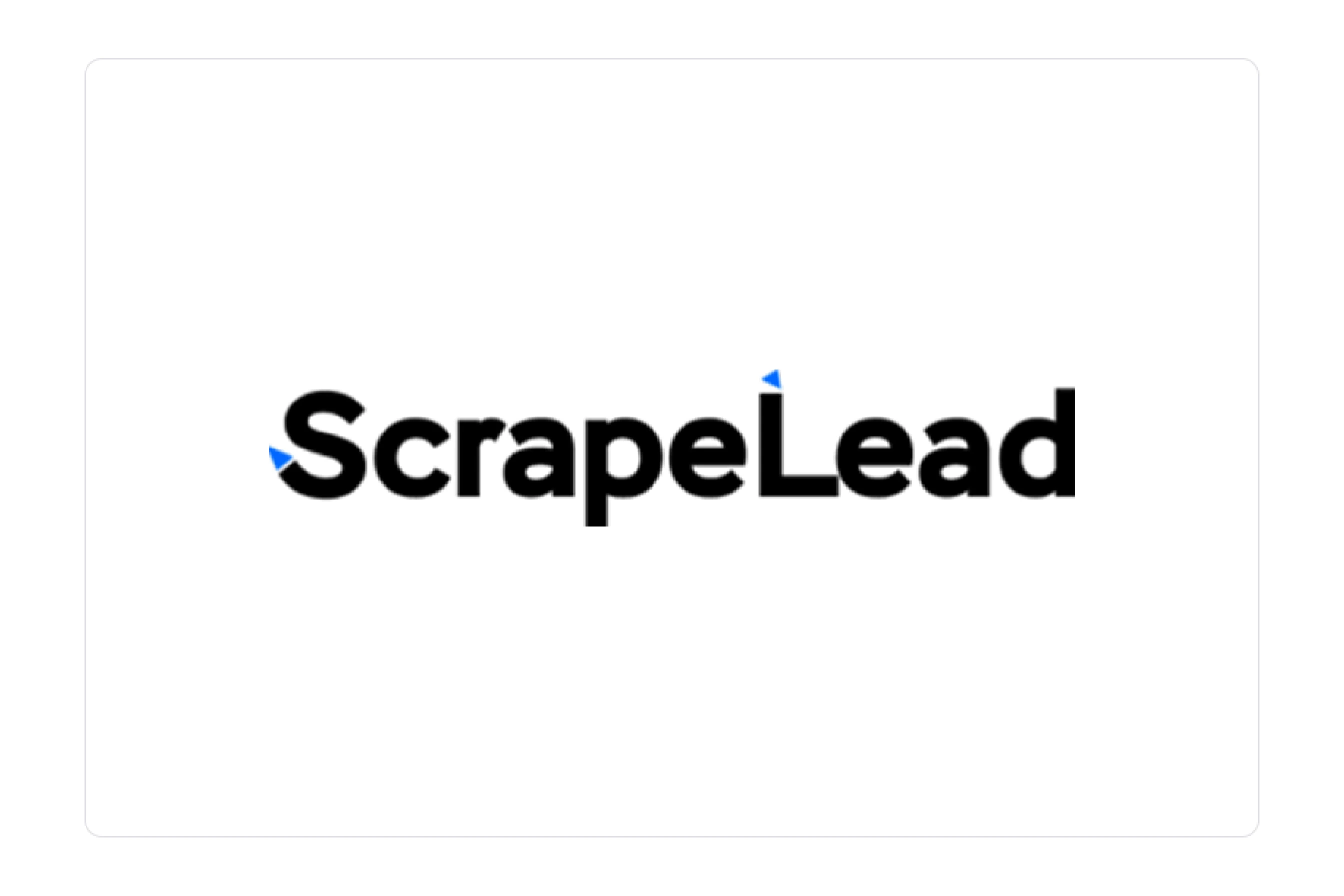
ScrapeLead.io is a niche player specializing in automated lead and data collection from open sources. The main focus is on the USA and Canada, although the platform is gradually expanding its geography. ScrapeLead.io offers semi-automated turnkey scraping solutions. It is a good fit for real estate agents, brokers, and real estate marketing teams. For real estate, the platform focuses on two types of data: real estate listings and contact information for agents or owners. The company has ready-made integrations with major MLS resources, Zillow, Realtor, Trulia, Craigslist, Redfin, etc. Scraping is customizable (location, property type, budget), and can be uploaded via the dashboard or automatically to CRM.
Advantages:
- Focus on the US/Canada market with deep coverage of MLS and local sites;
- Extraction of both structured data (price, area, location) and contacts (email, phones, social networks);
- Simple interface without the need for technical integration;
- Pre-built templates for Zillow, Realtor, Redfin, with regular updates;
- Access to a dashboard with filters and the ability to export to CSV or via Zapier.
Octoparse
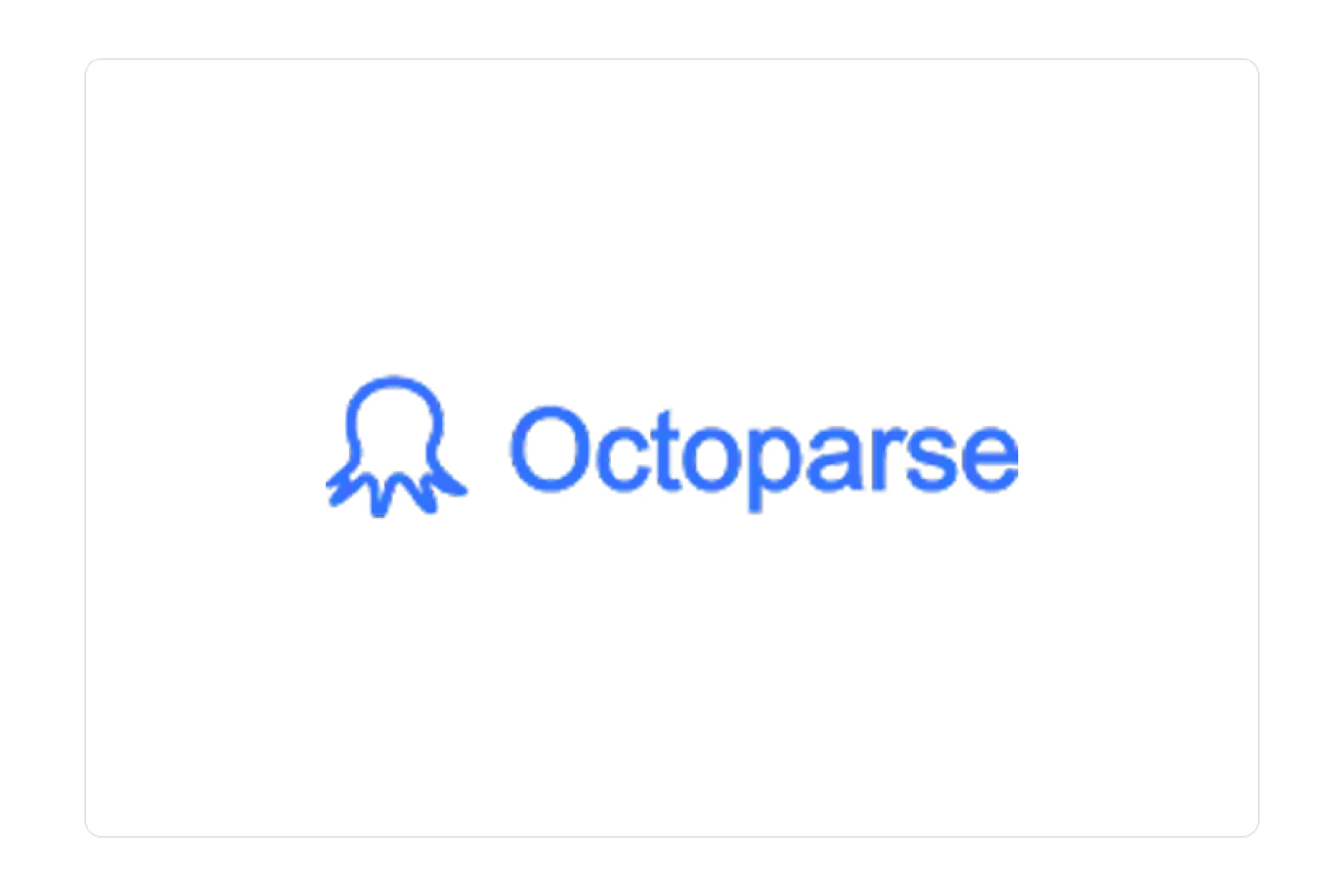
Octoparse is a no-code scraping platform aimed at users without a technical background. It provides a graphical interface that allows you to create parsers by specifying elements on the page without writing code. Despite its versatility, Octoparse is also actively used in the real estate segment, especially by those who want to quickly test a hypothesis or collect realtor data without involving developers. The platform allows users to scrape information from any HTML site, from MLS to regional portals with ads. One of its strengths is quick launch: creating a scraping project takes a few minutes, and pre-configured templates greatly simplify the whole process. It’s a perfect fit for real estate professionals without a technical team, freelancers, agents, analysts, and small companies who need quick access to open data without deep integration or a custom pipeline.
Advantages:
- No-code interface that does not require technical knowledge;
- Ready-made templates for Zillow, Trulia, Realtor, Redfin, AirBnB, and others;
- Cloud processing, export to CSV, Excel, Google Sheets, API.
Apify
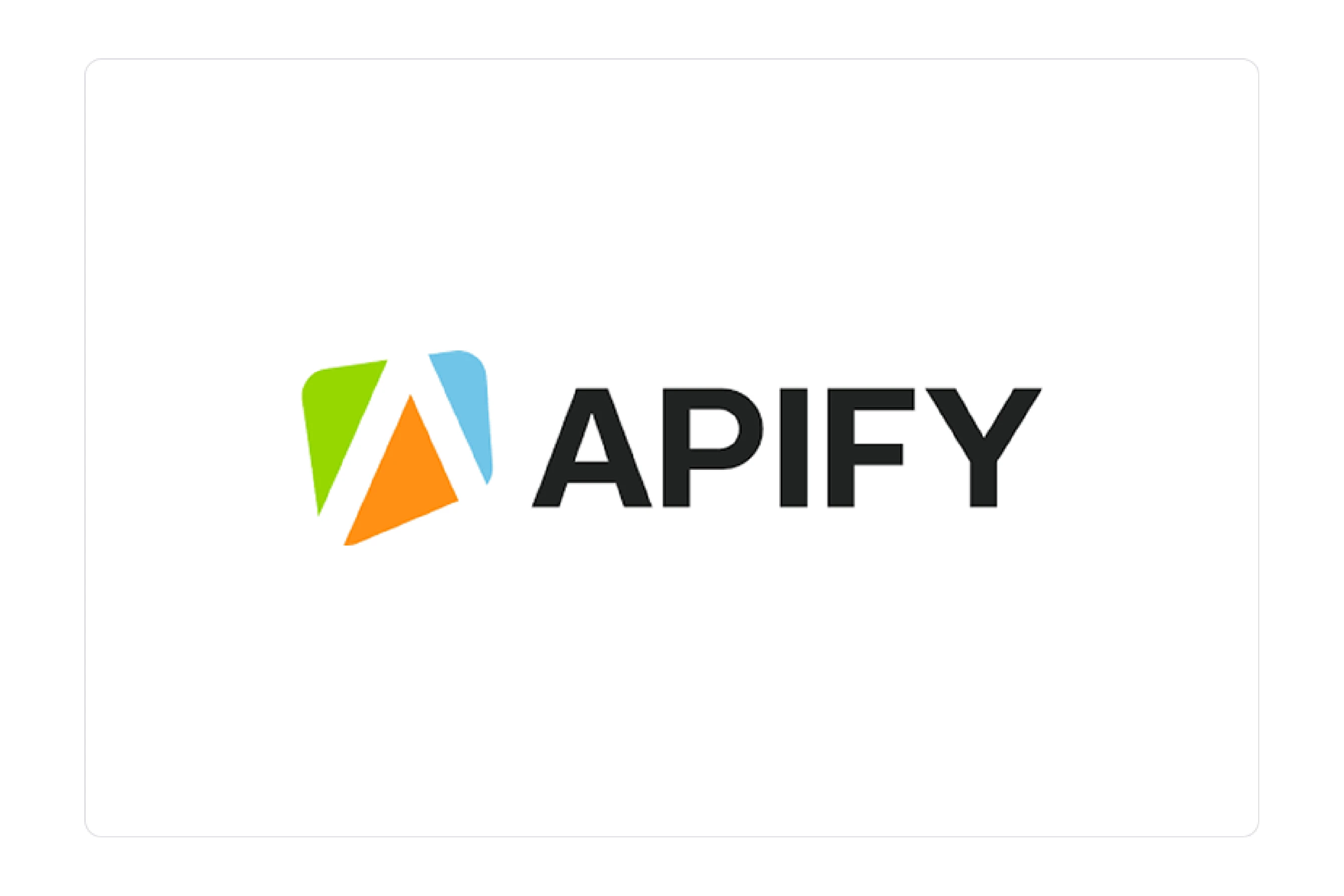
Apify is a web scraping and browser automation platform. It is the largest ecosystem where developers build, deploy, and publish web scrapers, AI agents, and automation tools, Apify calls them Actors. It is known for its flexibility, the ability to write custom actors (scraping bots) in JavaScript/Node.js, as well as a powerful cloud infrastructure for large-scale data collection. Apify is often used in areas where control over the collection logic is required, rather than ready-made templates. The platform provides hundreds of ready-made templates, in particular for collecting real estate data from sources such as Zillow, Realtor, Redfin, Idealista, Rightmove, etc. But the main thing is the ability to write your own, custom scrapers for specific sources or under changing conditions (for example, sites with unstable DOM or authorization). Data can be processed in real-time, stored in a data store, exported or transmitted to an API. It can be used by product teams, analytics departments, and data engineers in real estate companies who need full control over scraping.
Advantages:
- Pre-built tools for popular real estate sites;
- Support for authorizations, AJAX, SPA;
- Integration with Make, Zapier, Google Cloud, AWS, any API;
- Cloud environment with automatic scaling and logging.
ScrapeHero
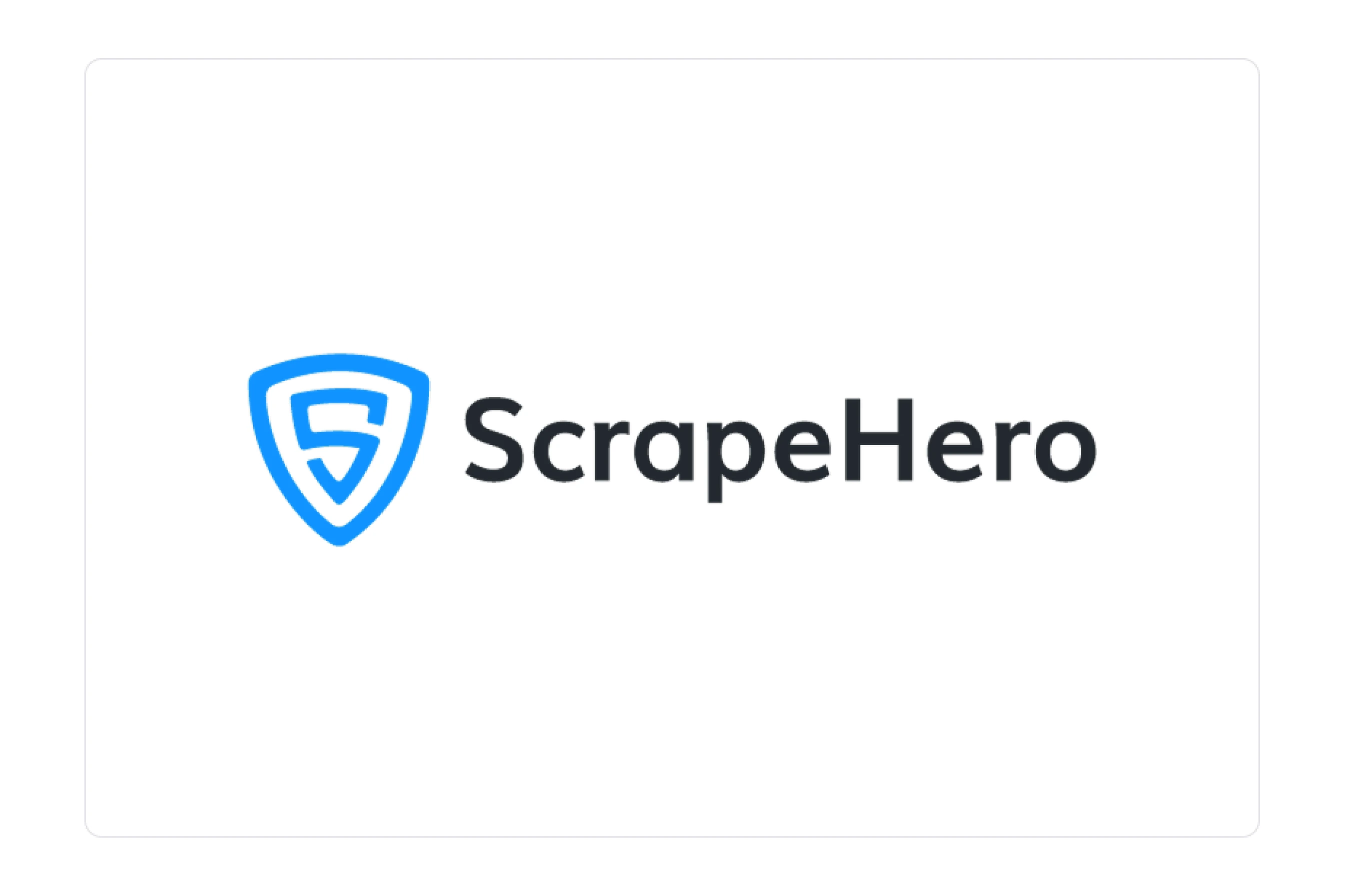
ScrapeHero is a full-cycle service for developing custom web data collection solutions. Unlike self-service platforms, the company operates in a “data-as-a-service” format: the team analyzes client requirements, creates parsers, launches data collection, processing, cleaning, and provides data in an agreed format. In the real estate sector, ScrapeHero has experience in both market monitoring and competitive analytics. ScrapeHero does not offer template solutions. They build individual scraping systems that can work with non-standard sources, for example, regional agency sites or portals without APIs. The company also provides post-processing: duplicate removal, object classification, geocoding, and relevance checking. The infrastructure supports large data volumes and regular updates. It’s ideal for companies that want to delegate the entire process: from scraping to integration.
Advantages:
- Full customization for business and source specifics;
- Post-processing: cleaning, normalization, categorization;
- Support for integrations in Snowflake, S3, BigQuery, FTP, API;
- Ability to regularly receive “analytics-ready” data without additional ETL steps.
Bright Data
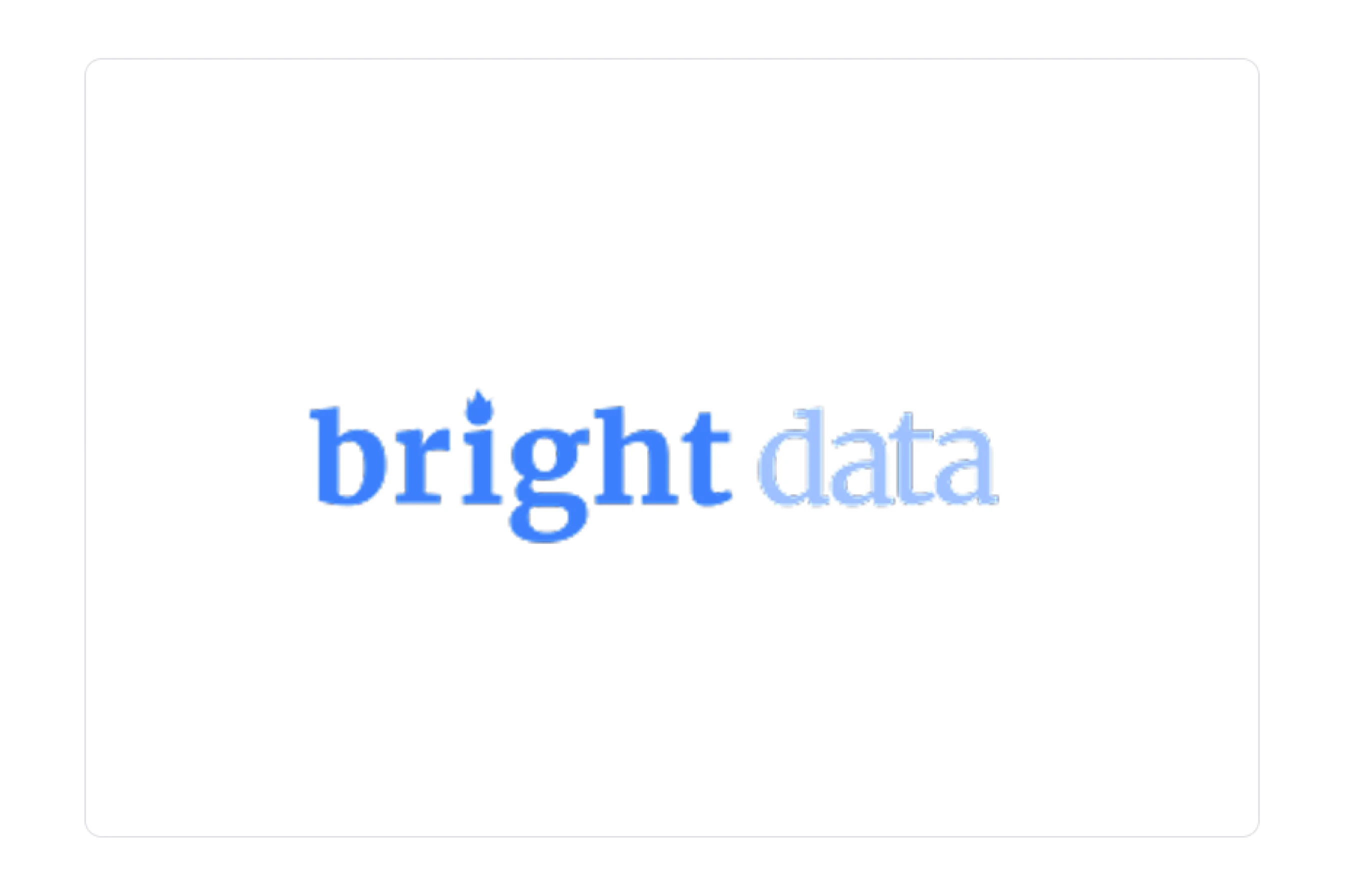
Bright Data (formerly Luminati) is one of the largest infrastructure providers for web scraping and public data collection. The company specializes in building large-scale, legally secure solutions for the corporate segment. The main focus is real-time data access via proxies, ready-made APIs or customized data streams. In the real estate sector, Bright Data is actively used for monitoring listings, competitive analysis and price dynamics. Bright Data has the world's largest pool of residential, mobile and datacenter proxies––over 72 million IPs. The company also provides ready-made Data Collectors (including for real estate sites), which can be customized to their own needs via the interface or API. For teams without dev resources, there is a "scraping-as-a-service" option. Enterprises that work with large amounts of dynamic data, or need infrastructure for legal, large-scale collection often choose Bright Data.
Advantages:
- One of the biggest proxy pools (72+ million IPs in 195+ countries);
- Ready-made collectors for Zillow, Realtor, Trulia, Redfin, etc.;
- Web Unlocker to bypass CAPTCHA and bot-detection systems;
- Support for real-time requests via API integration or low-code integration.
Final Thoughts
In 2025, scraping in real estate must be part of the business strategy. Speed, quality of structuring, integration with BI systems and legal compliance––all this directly affects business decisions. Each of the companies considered has its own strengths, but the choice always depends on the scale, type of data and internal readiness to work with them.
If you need a flexible solution taking into account the specifics of your market, objects or business model, the DATAFOREST team can help. To discuss your use case or get a free consultation, schedule a short call with our team.
FAQ
How can scraped property data improve my business’s decision-making?
It provides access to current prices, market trends, competitive activity, and changes in listings, allowing you to forecast demand, set prices, and respond quickly to changes.
How do I ensure scraped data is accurate and up-to-date?
By working with providers that have automatic updates, data validation, change monitoring, and deduplication logic, regularly checking sources is also critical.
What platforms can be scraped? (Zillow, Realtor.com, Redfin, etc.)
You can scrape Zillow, Realtor.com, Redfin, Trulia, Craigslist, MLS platforms, local agencies—virtually any public source that does not restrict access legally.
How customizable are real estate scraping solutions for my specific business needs?
These solutions are fully customizable. You can collect only the data you need, choose the update frequency, format, geography, sources and integration with your systems (CRM, BI, etc.).
What are the risks of using unreliable real estate scraping providers?
Inaccurate or outdated data, terms of service violations, legal consequences (GDPR/CCPA), delivery disruptions, lost business opportunities due to poor quality or structuring.



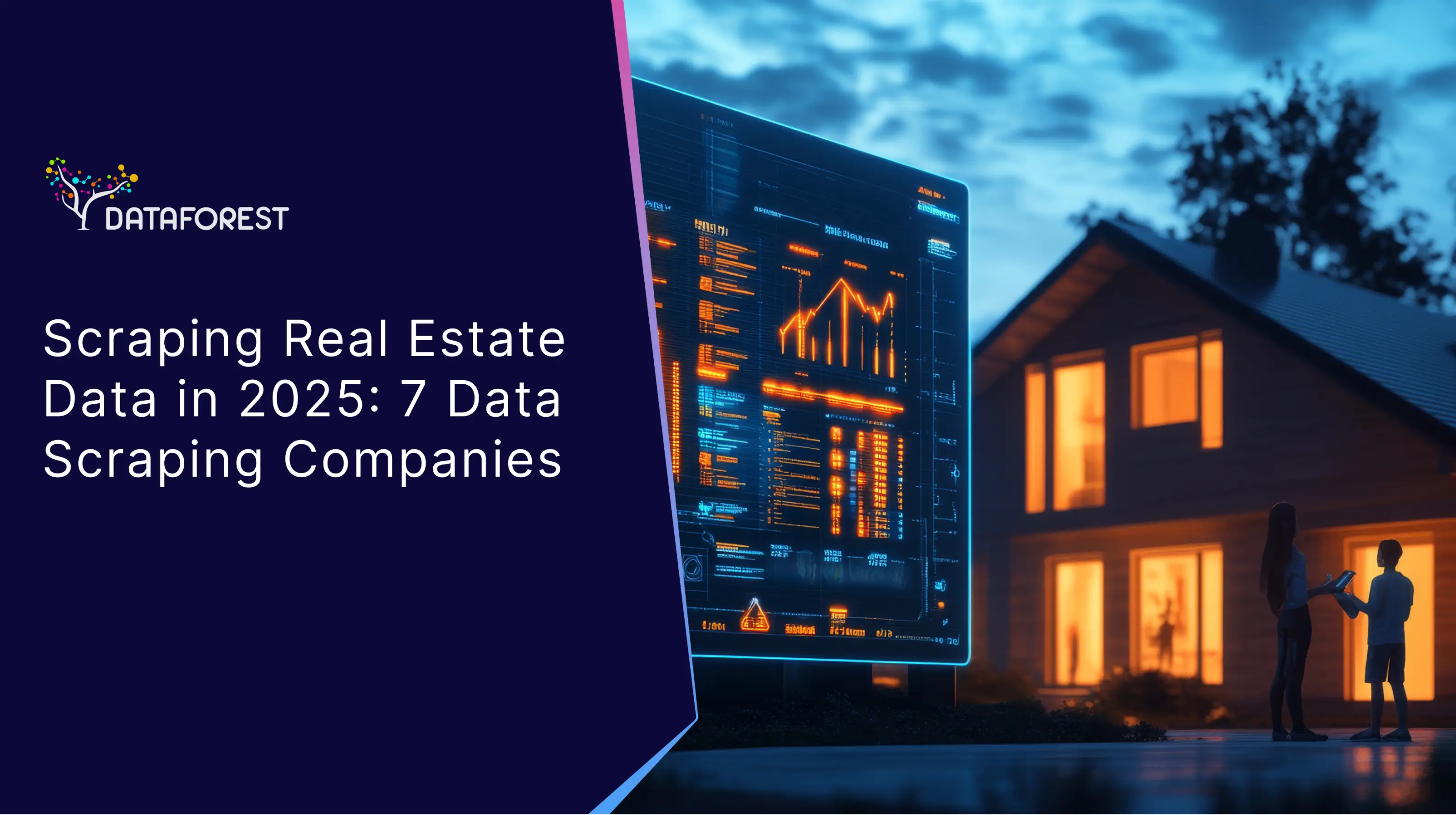





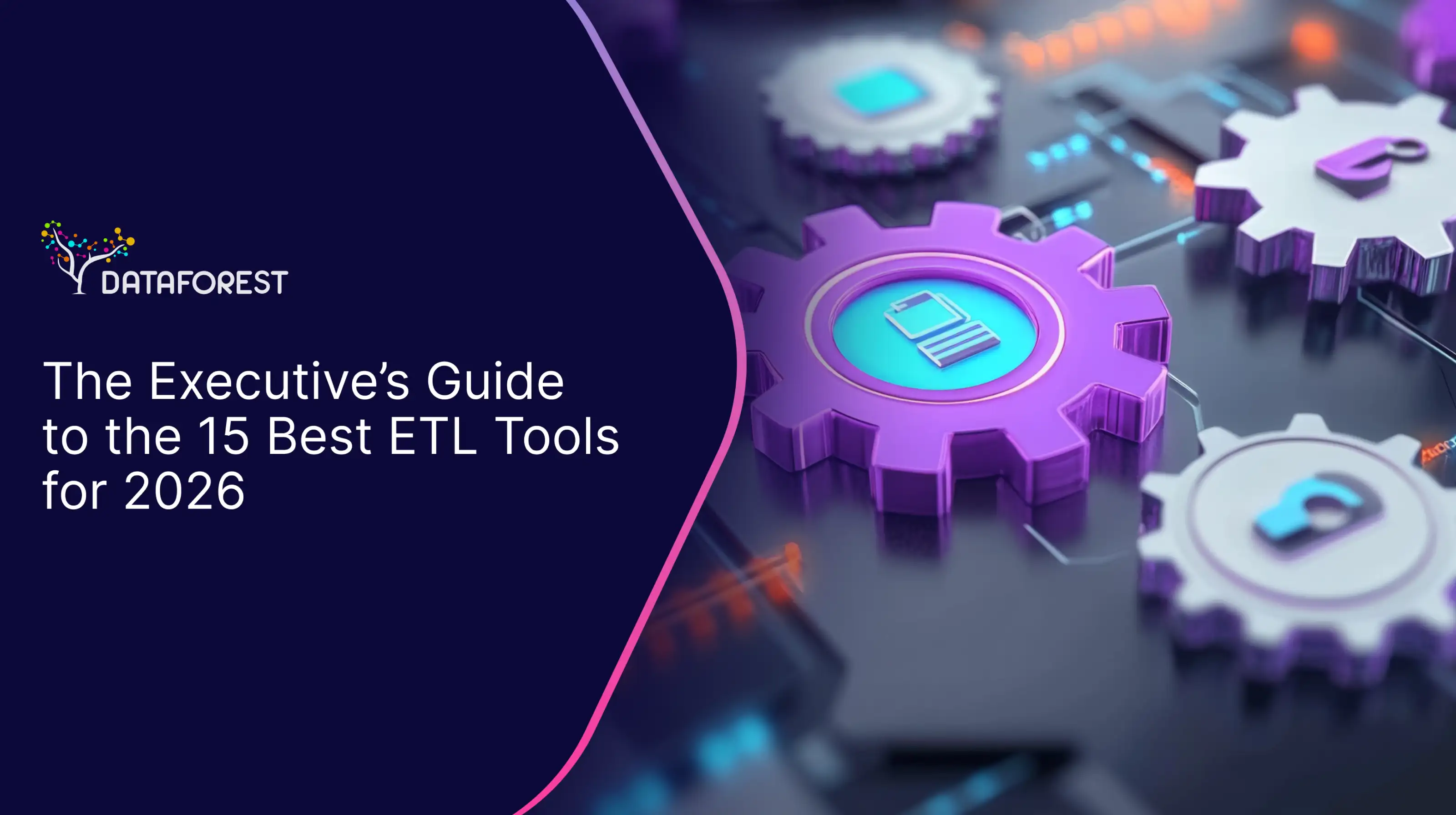

.webp)












